Introduction
My name is Ruben Cress, I'm a content strategist and photographer based in the Netherlands. I've been working as a photographer and content strategist for over 10 years. I've worked for respectable big and small international companies worldwide. It was my job to find solutions for companies, and translate a brand's mission into high-quality visuals. While photography has always been a passion, finding and creating out-of-the-box solutions for companies has been my drive to create.
Since 2017, I've been researching blockchain technology, cryptocurrency, and digital currencies. I have also been part of the Hive community for 5 years. For these years, I've been trying to get a better understanding of how Hive works and it just blows my mind how very little traction this blockchain has received.
Over the course of 5 years, I've researched, brainstormed, and thought of concepts that could work well for Hive. None of these concepts, ideas, or brainstorming sessions ever fully grasped the full potential of Hive, and I got stuck due to Hive's wide potential. Hive's capabilities are simply too much. However, sharing this case study may be the first big contribution that I make to the Hive blockchain as a user.
Please note that I've spent a decent amount of hours working on this Case Study, trying to present it as clearly as possible while providing samples of theoretical and potential additional utility for our Hive-Backed Dollar.

Case Study: HBD Savings Delegation
This case study is about the theoretical feature to delegate the Hive Backed Dollar saving rewards from one account to another. I'll explain why this could be a great deal for Hive's ecosystem in-depth, and that this implementation could potentially attract new long-term investors. Besides attracting investors, this theoretical feature could be a groundbreaking way to open up ways to incentivize the use of HBD in general, while locking up value in Hive's ecosystem, as well as introducing DeFi solutions and unseen in the Traditional Finance System. After reading this case study, you'll get a good idea what this feature is all about.
By any means, this case study is no financial advice, and parts of its content is completely theoretical and for educational purposes solely. Of course, I personally would like to see this, or something similar implemented in Hive, as Hive is the blockchain that can deliver, govern and face such a feature.
As stated in the introduction, this Case Study embodies a few weeks (probably more) of research and work, and this translates back into a long-form article. This article is for you if you're a developer, a stakeholder, or a very involved community member/leader. If you're new to Hive, you might be overwhelmed, but I do welcome anyone who would like to reply with their thoughts on this Case Study by delivering constructive and critical feedback.
Table of Contents
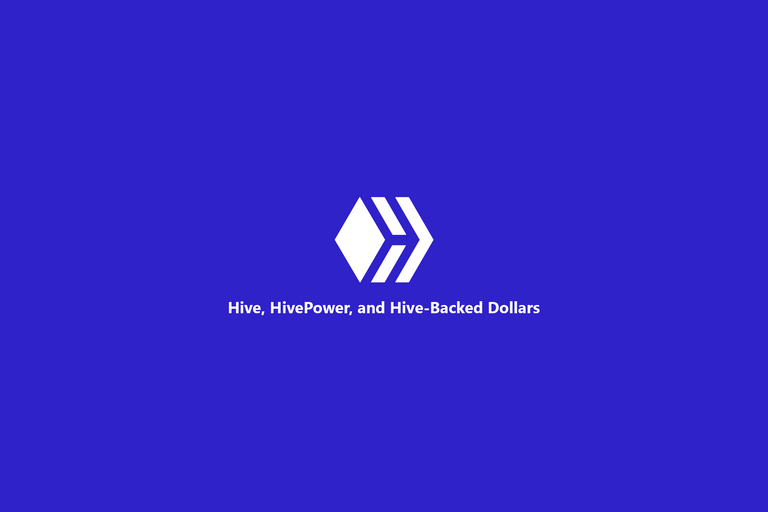
#tokens #cryptocurrency
Hive Tokens
First, we will have a look at, and identify the available properties of Hive, HivePower, and Hive-Backed Dollars. This is for future reference of the case study and to understand how these tokens work on Hive.
1. Hive
Hive is the native cryptocurrency of the Hive blockchain. Hive can be used as a form of payment and as a store of value. Hive can be exchanged for other cryptocurrencies, and Hive can be swapped for HivePower, which will give you influence in the Hive network.
2. HivePower
HivePower represents a stake in the Hive blockchain. Users can only receive HivePower when they lock Hive, or get rewarded in HivePower by making contributions to the network. HivePower allows users to have a say in the governance of the blockchain and users can earn (more) rewards for participating in the network. When you lock Hive, you also receive Resource Credits which makes it possible for users to make transactions on the blockchain (blogging, commenting, voting, delegating, trading, sending tokens, and such).
3. Hive-Backed Dollars
Hive-Backed Dollars (HBD) are a stablecoin that is pegged to the value of the US dollar. HBD can be used as a store of value, can also be to purchase goods and services from world-wide merchants that accept HBD. Users can also stake HBD to mint more HBD.
There are four ways to mint and receive HBDs.
- Through posting rewards (50% of the author's rewards are converted to Hivepower, and 50% are converted to HBD). I'm excluding the 100% Hivepower and 100% liquid pay-out options.
- Through conversions. HIVE tokens can be converted at a fixed exchange rate directly in a wallet.
- Through the market. Available supply can be bought off the internal HIVE-HBD market, and/or exchanges that have listed HBD.
- Through locking up Hive-Backed Dollars.
Conclusion: Hive Tokens
What do these tokens have in common?
Besides that these tokens all operate on the Hive blockchain, and all three of them have properties such as: low transaction fees, fast confirmation time, and they are all decentralized.
Hive's protocol offers low-cost, fast-, feeless transactions, and focuses on community-driven decision-making governance, which makes Hive one of the biggest blockchains to offer true decentralization to all of its users and builders.
- Low cost / Fee-less
- Fast transactions
- Decentralized
Hive-Backed Dollar savings explained
Now that we know the properties of the three Hive tokens on the blockchain, we need to investigate more about the HBD savings feature of the Hive blockchain.
What is Hive-Backed Dollar Savings?
'Hive-Backed Dollar (HBD) savings' is a feature of the Hive blockchain that allows users to earn interest on their HBD holdings. When you deposit HBD into a savings account, you are essentially lending your HBD to the network, and in return, you earn interest on your deposit. The interest rate on HBD savings is determined by the network's inflation rate, which is set by the community (block validators/witnesses) through a process of decentralized governance.
HBD savings accounts are similar to traditional savings accounts in that they allow users to earn interest on their deposits, but they have some key differences as well. For example, HBD savings accounts are completely decentralized and operate on the Hive blockchain, which means that they are not subject to the same regulations and oversight as traditional savings accounts.
Additionally, because HBD savings accounts are on a blockchain, users can easily access and manage their accounts from anywhere in the world, 24/7/365, and all transactions are fast, secure, and transparent.
Users can deposit or withdraw HBD from their savings account at any time, although withdrawal may take 3 days to be fully processed. This mechanic is to prevent abuse and market manipulation.
Conclusion: Savings
Savings can become a rewarding way to earn interest on your HBD, while at the same time, it helps Hive's ecosystem as this is one of the four ways to mint more HBD.
- The interest rate is determined and set by the community
- Interest rate may vary
- Completely decentralized
- 3-day withdrawal
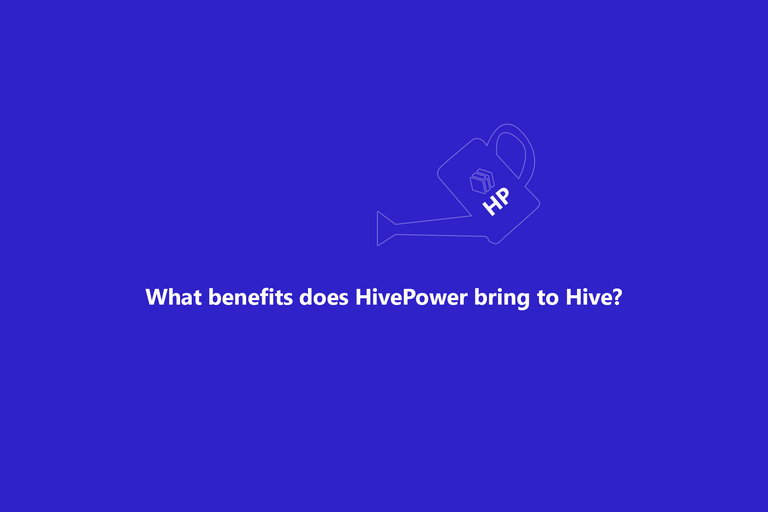
#Governance #NetworkUsage #DeFi
What benefits does HivePower bring to Hive?
Now that all Hive tokens (excl. Resource Credits) and the main features have been introduced and discussed, I want to take a look at the benefits of HivePower. What exactly does HivePower allow us to do on the platform? This aspect of the Case Study will help us understand how HivePower is handled.
1. Governance
Every HivePower holder has a say in the governance of the Hive blockchain. You have the ability to vote for witnesses (block validators), proposals, and changes to the network that determine the course of the future of the blockchain. Such changes are mostly approved by the top 20 witnesses, as they have been chosen by the majority community as top witnesses.
Furthermore, HivePower holders are encouraged to use their HivePower to fight/prevent abuse and spam made by malicious users on the network.
2. Influence
With HivePower, you will have influence in the network. Whether this is a lot or a little, your influence is mirrored as in your HivePower. The more HivePower you hold, the more your vote counts in the community decision-making process. Whereas the majority sees the vote as a value-driven vote, where in fact, the amount of HivePower determines how much you can distribute of the daily reward pool.
3. Earn rewards
Hive's blockchain is mostly known for its track record in distributing Hive rewards. As mentioned above, all Hive rewards are distributed through community-made decisions.
3.1 Curation rewards
Receiving curation rewards require HivePower as well as activity in the network. This means HivePower stakeholders need to actively participate in the network and find (high)quality content to curate. The rewards are based on the amount of current holding HivePower, and how decisions are made on how to curate content such as blog posts, or comments for example.
3.2 Holding rewards
HivePower holders are also eligible to earn rewards for holding HivePower. These rewards come from block production and are distributed to HivePower holders based on the amount of HivePower they hold. ~3% APR
4. Resource Credits
Resource Credits makes it possible to transact on the network and perform certain actions. These actions are paid in Resource Credits (RCs), which are transferred to you once you "Power Up" (swap Hive tokens for HivePower). The most known actions are; publishing a blog post, voting on a blog post, commenting on a blog post or a comment, and creating an account.
5. Store of Value
HivePower is tied to the overall growth of the entire Hive ecosystem. Hive/HivePower could also become deflationary (conversions), which will eventually cause a decrease in the total maximum supply of Hive, potentially resulting in an increase of value in the remaining tokens.
6. Delegation
You can delegate HivePower to another user. This may be by far the most underrated aspect of HivePower in my opinion. The ability to delegate HivePower to another account is in so many ways very innovative. Distributing value (all of the benefits displayed above) over the network without risking losing it is mind-blowing.
Conclusion: Benefits of HivePower
Most benefits of HivePower are related to the governance of- and transacting on the network. Holding HivePower is a must if you want to participate in the network.
- HivePower is Governance and Participation focused
- Holding HivePower yields a small passive increase of HivePower
- Voting for witnesses (block validators) is important
- Without Resource Credits you cannot transact in the network
- You can delegate HivePower to another person without risking losing it
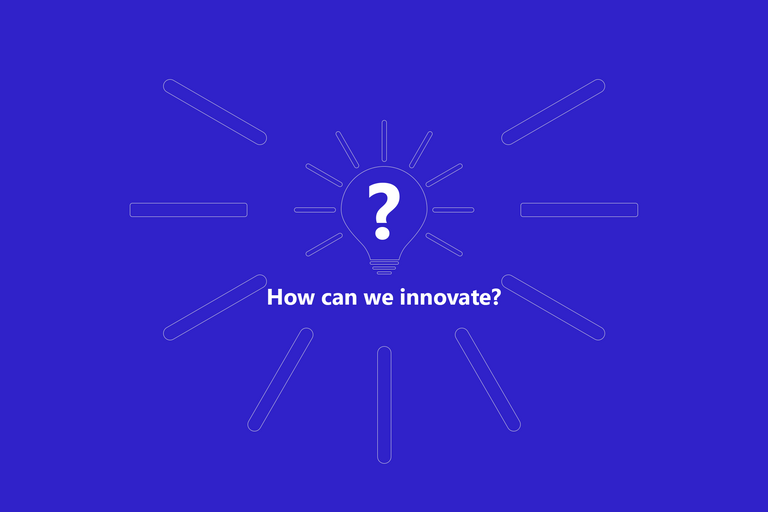
How can we innovate?
While a blockchain protocol like Hive has been around for years and has proven to be capable of enduring harsh bear markets, it may be simple to say that something is missing (nothing is missing), it has actually proven itself to withstand bad weather. However, it's always good to innovate. So, how can we innovate?
Now that we have fully devoured the current technical aspects of all the tokens on Hive, and the feature of HivePower, we learned that delegation is maybe one of the most powerful mechanics Hive has.
While HivePower makes it possible to transact on the blockchain, it is very participation orientated. Liquid Hive tokens are more or less used for selling or used to swap for HivePower. While Hive-Backed Dollars are only used to sell for another crypto, buy products with, or placed into a HBD savings account to mint new Hive-Backed Dollars over time.
While HivePower holds properties to participate in the Hive blockchain, in terms of governance and transacting in the network, I feel that utility for HBD is somewhat limited.
Here, the question arises, and we start to see a potential option for growth for Hive's ecosystem:
If...
Delegating locked Hive (HivePower) mainly focuses on governance and transacting in the network.
Then...
Delegating locked Hive-Backed Dollars could focus on...
I'm quite sure we can find plenty of use cases for this potential feature. Most use cases are quite technical or require financial expertise, this eliminates the majority of Hive's potential userbase (and eventually the main target audience). This is the question I'm hoping to answer with this Case Study.
Since this feature doesn't exist on the Hive blockchain, the following research and study are all theoretical. I'm quite sure that the development of such a feature is a heavyweight for our developers with many technical challenges.
Introducing: Delegated Locked Hive-Backed Dollars
Delegated Locked Hive-Backed Dollars is a feature that allows users to delegate HBD that is locked in a savings accounts, to another account. This allows the delegated account to claim newly minted HBD. By delegating locked HBD, users benefit by having the newly minted HBD become claimable by the delegated account without sending or lending out actual HBD.
Why is a fair question, and one that can be answered quite easily. However, to be able to answer this question thoroughly, a better understanding of HIVE, HIVEPOWER, and HBD is required. In the above sections, we talked about the benefits of the 3 existing tokens on the Hive blockchain for users. While Delegated Locked Hive-Backed Dollars bring benefits (in theory) for users, and could be used as a bridge to bring more utility for HBD, but what benefits would it bring to Hive's ecosystem? If we were to disrupt the financial system, we might as well do it with a bang.
First things first: we first have to understand the benefits of locking HBD for the Hive blockchain and how it impacts Hive's ecosystem.
What is the benefit of locking Hive-Backed Dollars for Hive?
Locking up HBD provides more benefits for Hive than its 20% APR (at the time of writing, this may change in the future). If more HBD is being locked up, we can see a growth in Total Value Locked (TVL), which brings great benefits to the ecosystem of Hive. But what else? These benefits are important aspects and properties that apply to the feature of being able to delegate locked HBD.
1. Stability
Removing existing HBDs from circulation can help stabilize the HBD. When circulating supply becomes more limited, it can make HBD more valuable, which will help to stabilize its price.
2. Increase demand in Hive
Users need HBD to be able to purchase Hive on the internal Hive market. To generate more HBD, users either have to actively participate in the network by blogging and commenting to earn HBD, or they can lock up HBD in a savings account. Trading HBD for HIVE on the internal Hive market drives up demand for Hive and potentially causes Hive's price to go up.
3. More conversion
When HBD is locked up in savings on the Hive blockchain, the newly minted HBD can be converted to Hive at a fixed exchange rate after unlocking them, this unlocking process takes 3 days. The 3.5-day conversion process can be used to increase the amount of Hive in circulation, which in turn could potentially drive up the demand for Hive.
4. Growing a culture of savings
Growing a culture of savings on the Hive blockchain is a sign for Hive to become a more mature blockchain. Promoting such a culture attracts developers, a new type of investor, and attract users in general.
5. Increase liquidity
While locking up HBD might not be directly responsible for increasing liquidity. Minting new HBD increases the total supply of HBD in circulation over time. This makes it easier for newly minted HBD to be traded on the internal market, or these HBD can be locked up again to increase all of the above benefits regarding HBD (both user and platform benefits).
Conclusion: HBD savings
Locking up HBD is a highly underrated form of passive income on the Hive blockchain. Currently, there is 'only' $5 million HBD locked up in savings, which is nothing. Currently, there is very little utility HBD. But when HBD is used massively, it brings many benefits for the entire ecosystem of Hive. In 2022, the total amount of HBD started at 2 million, and the year ended with almost 5 million HBD being locked in savings (source: @Dalz HBD reports), that's a 150% increase.
- It could bring Hive more HBD stabilization
- It could create a culture of savings, which leads to a more mature blockchain
- It could bring Hive to a more mature blockchain, which attracts a new type of users
- Currently, there is very little utility for HBD
It is a great opportunity to research more about HBD and HBD savings. However, this finally allows me to explain a bit more about how the theoretical Delegated Locked Hive-Backed Dollar can bring even more value to our Ecosystem. It's disruptive.
Now that we understand what the benefits are of the most important tokens and features on the Hive blockchain, we understand that creating use cases for these tokens is important for our ecosystem as they contribute to stability, liquidity, value, governance, and overall transacting on Hive.
Hive is clearly a blockchain that is meant to be build upon, to further decentralize data and applications. It's perfect for it. This is so different from traditional data sharing that we're used to. I also don't think that traditional financial use cases are meant to be working for Hive. Not saying that they won't work, because they would. I'm thinking more about a out-of-the-box solution that can disrupt the way how we save, spend and share value.
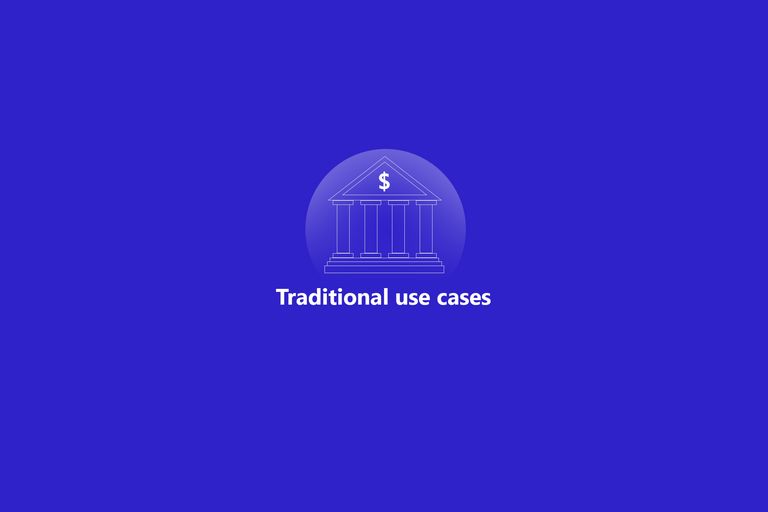
#traditional-finance #outdated
Traditional use cases
Traditional use cases to increase the incentive for users to hold more HBD should consist of more than 'just' generating more HBD, or selling it for Hive or other cryptocurrencies. Understanding that stabilizing a network by locking up more HBD can become quite technical for the average joe. People want to be relieved of technological whitepapers, not encumbered.
Traditional use-cases
- Find more Merchants to accept HBD
- Adding (more) liquidity pools
- DeFi: use HBD as collateral for the Lending/Borrowing mechanism
All the 'traditional' use cases for stablecoins require a decent amount of technical knowledge for users to either implement themselves, understand, or make use of. While this seems to be part of another problem, the solution doesn't lie in solving one of these problems. The solution lies in thinking outside of the box.
Innovation
When I think about the traditional use cases, I'm eager to be willing to know more about this. But, I also remember how innovative, and groundbreaking Bitcoin became. How it solved real-world problems. What good would it do, to copy/paste similar techniques and methods that are mostly seen in Traditional Finance? How would it empower the vision of Bitcoin, to shake the world and free it of its financial chains? Honest, trustless, with low costs, and high scalability opportunities.
Hive is the place to introduce next-gen innovation. We have a reputation system, we already know how to delegate assets from one account to another, and our transactions are feeless in terms of Hive and are paid with regenerating Resource Credits. Let's add that delegation feature also to locked HBD that are minting new HBD every day.
The benefits of 'Delegated Locked Hive-Backed Dollars'
A delegation feature for locked HBD savings could provide a range of benefits for the Hive ecosystem. It allows users to delegate their locked HBD savings to other accounts. This way, the delegatee have access to incoming liquidity and is being supported in a trustless way by community members. The use cases for this 'simple concept' can spread wide real quick.
A good note here is that users first have to purchase and lock HBD in their account to be able to delegate these locked assets. While acquiring more HBD already benefits Hive's ecosystem, delegating these HBD would result in even more benefits for the entire Hive ecosystem. Let's check them out:
1. Deeper network stabilizing
A Delegation feature for HBD in savings could increase the demand for HBD. It could also potentially lead to being locked up for a longer period, which could help to stabilize the overlal value of the HBD token (1$). On another note, a delegation system could also help with Hive's adoption. In overall, this could all lead to an increase in the number of active users and (authentic) transactions on the network, which then could further stabilize the overall value of HBD.
2. Community Building
Users can choose who to delegate to. Whether it be another user that is in need, a professional content creator, or a curation project. Having a delegation feature would only mean an increase in community building. Think about Content Creators, Curation Projects, dApps, Blockchain-Games, Charity Projects, Freelancers, basically anything and anybody that we share interests with. Due to the reputation score, it is easier to trust people and start building relationships with each other.
3. Flexibility
With a Locked HBD delegation feature, users will enjoy more flexibility in the network. Accessing liquidity, supporting projects, and so on have just become a complete new playing field. And vice versa, users can give back "real world value" and provide products/services when another user delegates locked HBD to them.
4. Diversification
This feature also allows for more options for diversifying investments and exposure to different projects, initiatives, or use cases. Additionally, businesses could adopt this feature and offer subscription-based products or accept HBD as payment, which could lead to an increase in the use cases and overall utility of HBD and thus an increase in demand for the token.
5. Collateral
The delegation feature for locked HBD could also be used as collateral for lending. Users could delegate a portion of their locked HBD savings directly as collateral for a service, as mentioned above. This feature would be similar to getting a mortgage at a bank, which would allow the lender to verify that the user can repay the loan.
Note: Please do not limit yourself by only these described benefits as how they are. The 'simple-concept' remains the same, what we do with it, is a whole other thing. These are the 5 benefits I could think of that are rather important for Hive's users, and Hive's ecosystem.
Use cases for 'Delegated Locked Hive-Backed Dollars'
Attracting new users, investors, and developers to Hive is an ongoing, and never-ending process. To do so, we need to offer out-of-the-box, innovative solutions. With this feature, it is possible to encourage entrepreneurship on Hive, and attract more business to Hive. At the same time, this feature focuses on community building and community interaction.
1. Subscription-based products/services
The delegation feature for locked HBD savings could also be used to gain access to subscription-based products and services. Users would be able to use their locked HBD as collateral in order to gain access to these services, and providers would be able to offer services and adapt to any change of collateral that's being delegated. This allows users to pay and receive HBD on a recurring basis.
Some examples include:
- Streaming services such as Netflix or YouTube Red
- Gaming subscriptions for online multiplayer games
- Newsletters or other digital publications
- Exclusive content or access to online communities
- Small businesses offering recurring access to exclusive products or services.
2. Charity
The feature of Delegated Locked HBD can also be used for charitable causes, both on a small and large scale. By allowing users to delegate a portion of their locked HBD savings to a charity project, the Hive community can come together to support various causes (and really change the world for the better).
For example:
- Community members can contribute to building a well in a developing community.
- Users can delegate their locked HBD savings to support other community members in need, such as helping to pay for groceries for a family in need.
- Support community-driven charity projects such as providing education for children in underprivileged areas.
- Large-scale disaster relief efforts
This approach allows for a more sustainable and long-term approach to charitable giving, as it is different than one-time donations. It also increases transparency and accountability in terms of how the funds are being used, as the community can track the progress of the project and ensure that the funds are being used for their intended purpose.
3. Additional Support for Hive Projects
Delegating locked HBD savings can be used to support various projects on the Hive platform. This feature can assist in keeping small projects alive, and also help sustain big community projects. By using locked HBD savings to support projects, it can reduce the pressure on the DHF to provide funding, allowing for the DHF to grow and also the community. Additionally, this feature can help reduce the amount of HBD requested for payouts in proposals, making it less stressful for both the DHF and proposers. This could potentially also help to mature the DHF and proposals.
Examples include:
- Curation Projects
- dApps
- Kickstarter-like crowdfunding initiatives
- Community-building initiatives, such as meetups or events
4. Web 3 Employment
The delegation of locked HBD savings can be used as a form of collateral for web3 employment opportunities. Employers can delegate a portion of their locked HBD savings as proof of their ability to pay employees, and employees can use the delegation of locked HBD savings as proof of getting paid for their work. Furthermore, the employee is ensured that their employer can pay for their payrate, as the collateral used by the employer is 60x their (monthly) fee. With regards of that, it's in the best interest for the employer to keep the employee working for his business for at least 5 years, as the employee would theoretically would continue to get paid for their work, but for free.
This feature can also help increase trust and transparency in remote and decentralized work environments, as both parties have a vested interest in the success of the employment opportunity. This can also increase the overall adoption of web3 employment opportunities and lead to more job opportunities and liquidity in the market.
Examples:
- Remote and Decentralized job opportunities
- Freelancing
- Part-time web3 jobs
- Temporary web3 jobs
- Gig opportunities
Conclusion: Benefits and Use Cases
Having such a feature available on the Hive blockchain could potentially offer gigantic growth and attract many users who can start building a business on top of Hive. With native cryptocurrencies like Hive and HivePower taking care of governance, delegating locked HBD could be an extraordinary utility and lead to substantial growth in Hive's DeFi market share.
Perhaps a small benefit, but for security: users can create an additional cold-wallet on Hive and delegate to themself.
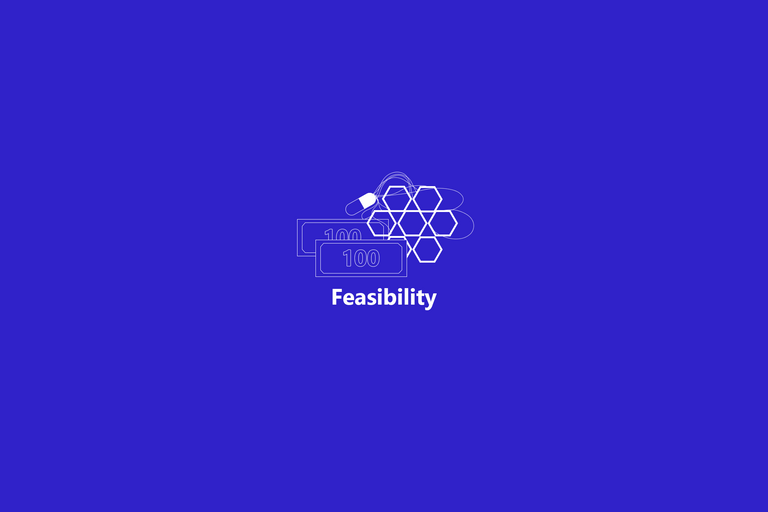
Feasibility
The feasibility or technical aspects of implementing this feature, such as the resources and time required for development, or any potential challenges that may arise during implementation are beyond my knowledge. I'm reaching out to community experts who know more about this.
From my understanding, HivePower and locking up HBD have similar traits, but are of course entirely coded differently. It seems to be the case that Hive is swapped for HivePower, so I'm hoping that there is a similar situation for HBD once it gets locked up and send to savings.
Also, technical problems may occur along the way, so perhaps, a Layer2 solution may be a temporary solution. But who would take on the task, to create a decentralized, free, and trustless feature? And who would trust such a feature, if it could also be done on Hive itself? What risks does it bring? And so on, and so on. I really hope members of our Core-Dev team could answer this (@blocktrades, @howo) or maybe @dan?
I do believe that Hive could be the first to implement such a feature. I'm hoping that the Core-Developers of Hive take their time to read the full-length of this case study.
Since there is no information about such a feature no-where on the planet? I honestly believe that this could be a game-changer for the whole crypto-space, a disruptor for traditional finance and with a probable outcome that Hive could take a lead in financial innovation.
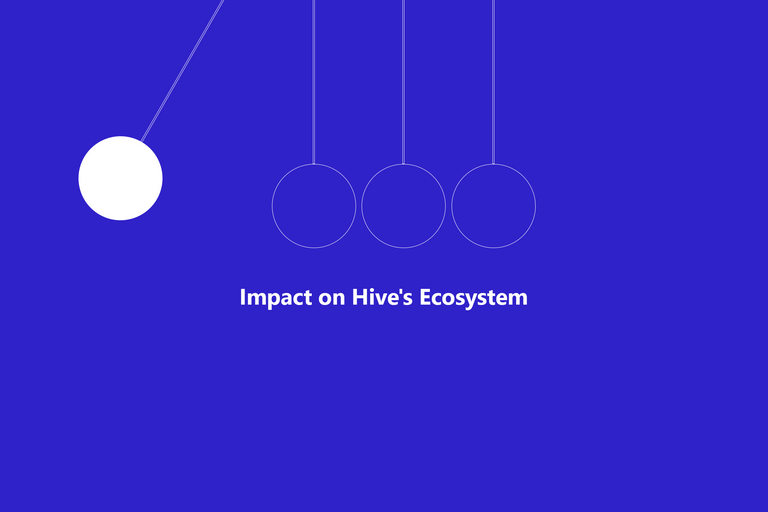
Impact on Hive's Ecosystem
The impact of the feature "Delegated Locked Hive-Backed Dollars" on the Hive ecosystem could be really significant. It could increase demand for HBD and lead to it being locked up for a longer period, which also could help to stabilize the overall value/peg of HBD. Additionally, it could also help to increase the overall adoption of the Hive ecosystem, as users would be incentivized to purchase and lock up HBD to participate and use the delegation feature. This could lead to an increase in the number of active users and transactions on the network, which in turn could further stabilize the overall value of the token.
It can also increase community building, as users can support other users, content creators, and curators that share the same interests, and/or build relationships with them. Additionally, it could also lead to the creation of new communities that are focused on specific content niches or supporting Hive projects and charity.
It could also provide users with more options for diversifying their investments and earning potential, allowing them to delegate their locked HBD savings to different accounts, users could increase their chances of earning rewards and accessing liquidity. Additionally, businesses could adopt this feature and offer subscription-based products or accept HBD as payment, which could lead to an increase in the use cases and overall utility of HBD and thus an increase in demand for the token.
Overall, a delegation system for locked HBD savings could provide an incredible amount of benefits for the Hive ecosystem, increasing its stability, growing/incentivizing community building, and providing more opportunities for diversification, flexibility, and usage of HBD.

Risks & Mitigation
However, there could be some risks associated with this feature as well. One risk is that if the feature is not implemented and managed properly (obviously), it could lead to a lack of trust in the system and potential losses for users who delegate their locked HBD savings.
Another risk could be the potential for abuse or misuse of the feature by malicious actors. It's important to have robust security measures in place and to ensure that it is being used for its meant purposes and to prevent abuse.
Finally (plus of course more risks (as with anything)), if the feature is not well-designed or does not gain enough adoption, it may not have a significant impact on the ecosystem and may not provide the intended benefits.
1. Technical Risks
- Development challenges: There may be difficulties in developing and implementing the feature, such as a lack of available resources or expertise.
- Code bugs: There may be errors or bugs in the code that could cause the feature to malfunction or fail.
- Integration: The feature may not be able to integrate well with existing systems or platforms, causing problems with data transfer and compatibility.
- Security: The feature may not be designed with sufficient security measures, leaving it vulnerable to hacking or other malicious attacks.
- User experience: The feature may not be designed with a user-friendly interface, making it difficult for users to navigate and understand. (PeakD is amazing, but could choose to not implement such a feature in their UI/UX if it were to exist)
2. Lack of adoption
- Insufficient demand: If there is not enough interest in the feature, it may not be widely adopted, which could limit its potential impact on the Hive ecosystem.
- Inadequate user experience: If the feature does not provide a good user experience, it may not be widely adopted.
- Limited use cases: If the feature only has limited use cases, it may not be widely adopted.
- Limited incentives: If users don't see the benefits of using the feature, they may not be motivated to use it.
- Limited access: If users don't have access to the feature, they may not be able to use it.
- Limited resources: If the feature requires a lot of resources/resource credits to use, it may not be widely adopted.
3. Security risks
- Hackers gaining access to the system and stealing locked HBD savings from users.
- A vulnerability in the code that could be exploited to allow malicious actors to create fake accounts or duplicate transactions.
- Weaknesses in the code that could be exploited to steal funds.
- Insufficient security measures to protect against DDoS attacks or other types of network disruptions that could disrupt the normal functioning of the system.
4. Liquidity risks
- Insufficient Liquidity: If there is not enough liquidity in the system, users may not be able to access their funds when they need them. This could be caused by a lack of demand for HBD or by technical limitations in the system.
- Unintended Consequences: The introduction of a new feature like this could have unintended consequences on the overall liquidity of the Hive ecosystem. For example, if a large number of users decide to lock up their HBD, it could lead to a shortage of HBD in circulation, which could negatively impact the overall value of the token.
- Lack of Transparency: If the feature is not well-designed or does not have adequate transparency, users may not have a clear understanding of how the system works, which could lead to mistrust and a lack of participation.
- No Exit strategy: If users are not able to exit the system easily, they may be locked in and not able to access their funds if they need them.
- Lack of secondary market: Without a secondary market, users may find it difficult to trade or exchange the locked HBD, which could limit the liquidity of the feature
5. Taxation
One potential risk related to taxation is that users may not be aware of the tax implications of delegating their locked HBD savings. For example, if users delegate their savings to an account in a different jurisdiction, they may be subject to different tax laws and regulations. This could result in unwanted tax liabilities for the users and could be a deterrent to the adoption of the feature.
Another potential risk is that the platform or the service providers may not be able to provide accurate tax information for the users, which could lead to compliance issues and fines.
Additionally, If the feature is not designed properly, it could lead to liquidity problems for users who have delegated their locked HBD savings. This could make it difficult for them to access their funds when they need them and could lead to potential tax issues.
It is important to note that this is a complex topic and it is always recommended to seek professional advice when it comes to taxes.

Conclusion & Feedback
In conclusion, the case study presents the unique opportunity of introducing a "Delegated Locked HBD" feature on the Hive blockchain. This feature has the potential to bring plenty of benefits to the Hive ecosystem, such as deeper network stabilization, community building, flexibility, diversification, and collateral. Also, the number of use cases for this feature is diverse. Examples of these use cases vary from subscription-based products and services to charity and additional support for Hive projects.
That said, it's important to stress that further research and feedback from the community and core developers are needed in order to understand more about the technical aspects of this feature and how to mitigate these risks. As said before, this goes beyond my knowledge.
It's important to mention that this feature is unique and innovative, and it brings an opportunity for the Hive blockchain to differentiate itself from others as well as another USP implementation on the Hive blockchain. If the core-developers of Hive see the value in this feature and decide to implement it, the Hive ecosystem could benefit long-term.
I'd love to hear feedback and suggestions from the community on this case study, and I look forward to open discussions on the potential of this case study's feature (Delegated Locked HBD) and how it can benefit the Hive ecosystem.
Signed, and written (with much passion) by,
Ruben Cress

Follow me on Foundation | Follow me on Twitter | Follow me on Instagram
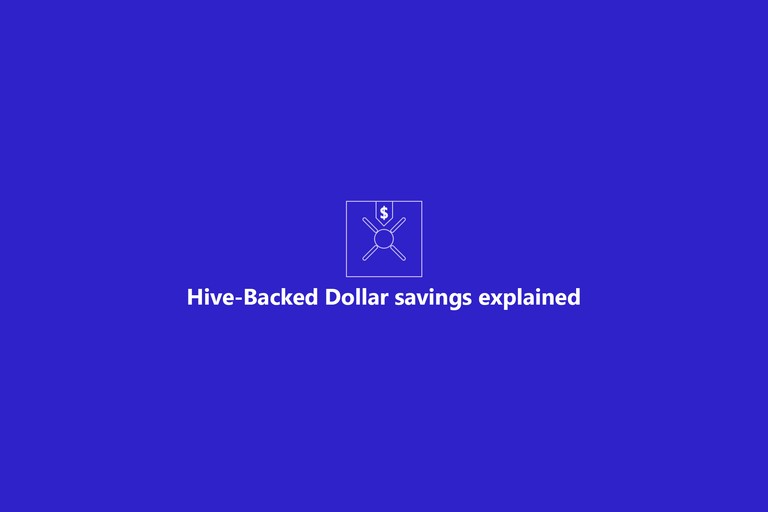
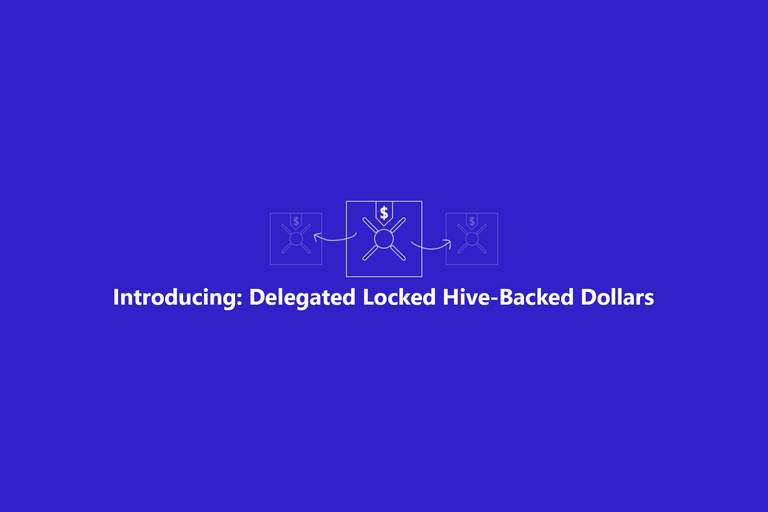

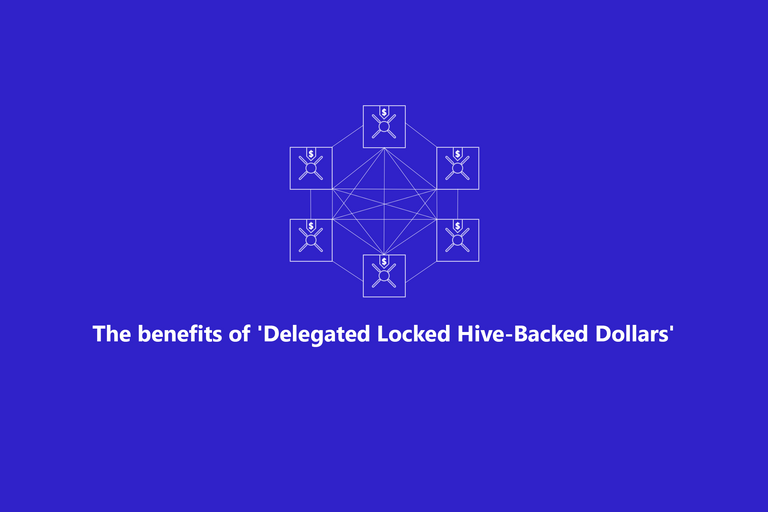
~~~ embed:1615515564629188608 twitter metadata:MzkzNTgxNzg2Nnx8aHR0cHM6Ly90d2l0dGVyLmNvbS8zOTM1ODE3ODY2L3N0YXR1cy8xNjE1NTE1NTY0NjI5MTg4NjA4fA== ~~~
~~~ embed:1615682599179161601 twitter metadata:MTM1MDAwMzMzMTU0OTI5MDQ5N3x8aHR0cHM6Ly90d2l0dGVyLmNvbS8xMzUwMDAzMzMxNTQ5MjkwNDk3L3N0YXR1cy8xNjE1NjgyNTk5MTc5MTYxNjAxfA== ~~~
~~~ embed:1615767650256175106 twitter metadata:MTEwMTMyMTc1ODY1MTY3ODcyOHx8aHR0cHM6Ly90d2l0dGVyLmNvbS8xMTAxMzIxNzU4NjUxNjc4NzI4L3N0YXR1cy8xNjE1NzY3NjUwMjU2MTc1MTA2fA== ~~~
~~~ embed:1615947206938214400 twitter metadata:MTUxNTc2MTY1MjEyOTQ4MDcxN3x8aHR0cHM6Ly90d2l0dGVyLmNvbS8xNTE1NzYxNjUyMTI5NDgwNzE3L3N0YXR1cy8xNjE1OTQ3MjA2OTM4MjE0NDAwfA== ~~~
~~~ embed:1616084149139574786 twitter metadata:MTIxNzU0NDI3Mnx8aHR0cHM6Ly90d2l0dGVyLmNvbS8xMjE3NTQ0MjcyL3N0YXR1cy8xNjE2MDg0MTQ5MTM5NTc0Nzg2fA== ~~~
The rewards earned on this comment will go directly to the people( @rubencress, @themanualbot, @acidyo, @idksamad78699, @seckorama, @ilazramusic, @beeminer, @valeriavalentina, @forykw, @russia-btc ) sharing the post on Twitter as long as they are registered with @poshtoken. Sign up at https://hiveposh.com.
Great post
Hey, what a great post.
I run a small investment fund here on HIVE and one of my investors recommended this post to me. Im glad i had just sat down with a fresh coffee, 6000 words!
Adding use cases for HBD would be ideal. I have used HBD in the past to collect for charity, collect for raffle tickets and to collect money for community group investments. I have used it as a hedge against a declining HIVE price and I even released HBD bond around a year back which was a failed project.
What I found out is there are just not enough users on HIVE to get the most out of what the blockchain can offer. We have free fast transactions and SMT's but most people are only interested in enriching themselves by chasing upvotes and airdrops.
I do like the idea of being able to delegate HBD or set up recurring payments as we can with HIVE but im not sure exactly how many people would use the feature. Since recurring payments were set up, I have coded up 3 bots for 3 tokens to issue tokens when a recurring payment is received but the vast amount of people still use hive-engine. This could have been lazy promotion on my part in hindsight.
Your proposal is very well written, makes alot of sense and would be another excellent feature to add to HIVE's arsenal but I think you're ahead of your time. If 10% of users were to use a feature like this, it's still only hundreds of people. You mentioned there are only 5 million HBD in savings which is a small number for something that's stable most of the time and pays out a 20 APY. We need more users and exchanges that will create pairs with HIVE. A few famous people shilling it would help as well but now im dreaming, lol.
Thank you for sharing this, you have planted a few seeds in my mind. I have sent you a few SPI tokens instead of giving you an upvote for this post.
I'm glad you had a fresh coffee in front of you before devouring this!
First off, thanks for taking the time to read, and sharing your thoughts and especially your experience about this field. Secondly, thank you very much for the 5 SPI tokens! I actually was planning to purchase some SPI, but still had to do some research. I'm sure this is a good start to help me remind myself to read more about Spinvest.
You've tried out plenty of stuff I see! The raffle tickets remind me of PancakeSwap's raffle, which brings me to their beta Pottery. Instead of paying for raffle tickets, you delegate CAKE to the pool which generates more CAKE, that same CAKE is being distributed through a weekly-lottery with tickets, whereas the delegated amount determines the amount of tickets. This could be done quite similar with this feature of HBD. I'm not sure why people would do that :), but then again... you do point out that people are mostly incentivized to enrich themselves, which is unfortunately true.
Also, for example, @arcange is asking people around, placing bot comments under blog posts that ask to support his proposal(s). While some people see this as a reminder, many (including myself) think it's a bit blunt to ask people for our Networks money without a transparent report on how much the costs are (unlike @jarvie from PeakD, who include a transparent list of costs (I applaud him for that)). This feature could exactly help Arcange, or when anyone's proposal isn't getting funded, to achieve funding on individual level without paying with valuable DHF funds. And build a culture that supports their service/product. This is simply because I believe that the $5MM locked in HBD is a bit on the lower end to support and stabilize HBD in the long run. This is a risk to consider, including a use-case to stress-relief the DHF and the network's funds.
Thanks again for sharing your insight and feedback!
Me too...
This is incorrect.
HBD in savings has a 3 day withdrawal.
Converting hbd to hive has a 3.5 day wait and is a separate operation.
Converting hbd to hive increases hive supply, and is more likely to drop the price of hive rather than raise it, all other things being equal.
It does burn the hbd, thereby making less hbd available.
Tldr; we've been asking for bonds coming up on two years, and were told to wait for the next hardfork, but I haven't seen any developer feedback since before the last hard fork locked features.
Ah yes, oops! Thank you very much for pointing that out. Fixed it, and edited it into the following;
The increase in price (different than value (as Hive is added into circulation it causes a decrease in value if everything else remains equal as you said)) was more or less a possible outcome as demand for Hive could be seen as trust in Hive, as well as that more liquid Hive could be available (imagine everything is locked in HP). But I see how this can be confusing or a bit too far-fetched to include.
Thanks again for helping me clear this up! Appreciate that a lot.
Now this is probably what the future should be like, utility for hbd, possiblity of subscription/delegation to projects using hbd.
I hope this happens before I grow up 😅😅.
An interesting idea! I think something like this would be well served by an executive summary, as I had to dig quite far to find the meat of the proposal.
To summarize, as I understand it:
At the end of the day, whether or not such a system impacts demand or the tokenomic realities of HBD come down section 8.2—risk of low adoption. For me at least. You need a reason for this to exist, and the proposal focuses on this in Section 5.
I'm finding that section a little thin on 🔥 BURNING 🔥 needs for this feature. There are plenty of 'hey, interesting' pieces. But no real problems that need fixing IMO. A huge issue with many crypto projects is: "developing a solution then going hunting for a problem." Successfully product development (web3 or otherwise) nearly always starts the other way around.
The counter, of course, is "Heyyyy I'm innovatin' over 'ere!"
If it's not a mountain of dev work to rig up something like this (and I imagine a bolt-on solution could be dev'd independent of tinkering around with the core Hive code), then it may indeed be better to enable the feature and let people play with it.
In that vein, the things that got me thinking include:
I appreciate the time and effort it took to put all this together! Very interested to see what other Hiveans, especially those with some weigh/dev chops, have to say :)
!PIZZA
Thanks a lot for your feedback and for taking the time to read the whole thing! You got that right indeed! I figured the 6K+ words could be overwhelming for some readers, so I tried to keep it "brief", but at the same time, I know there is a limit to the total amount of words that I could write in an article, and didn't want to risk a 2 part or exclude information.
The reason why you had to go through all before getting to the meat is that I think it's important to understand the existing features that Hive already has (from my POV), so in a scenario when my thought process is based on incorrectness, the meat would need adjustments as well. For example, I completely forgot about the burning mechanism and added way too much salt to the meat.
I actually started thinking about this "solution" months ago because I was brainstorming for a business that would like to offer monthly pay in crypto to its employees, and with all the rug pulls going on I thought employees are more at risk in the crypto space than employers, while employers would state the other. The challenge/problem was: how can an employee prove to be trustless, and guarantees employees there are enough liquid assets available to guarantee to pay for work in an anonymous space that's based on trustless transactions? Solution: Delegating HBD to an employee both guarantees pay for the employee, as well as guaranteeing that there are enough liquid funds available in the company. The problem: a transparent feature like that doesn't exist.
I'm not entirely sure or enthusiastic about a burning mechanism implemented in the feature, because this could also give long-term unnecessary problems if Hive becomes deflationary. I did think of allocating 0.1 - 0.5% to the DHF instead, as the DHF needs to grow IMO to further protect, secure, and stabilize the network. I believe that those properties should be community choices.
I'm pretty sure people would love using such a feature, especially people who have never used Hive before. Think about next-generation projects that fund start-ups with delegation, without people losing their buying power.
As someone who pays more attention to HBD than average, I thought this was quite enlightening in general ... I love the idea of being able to delegate HBD to other people from savings. You make a good point about taxation ... that could be an absolute bear, particularly here in the U.S. -- but this is the only major drawback I can see from "fiat world."
I add a thought to your thoughts; I think of HBD as a holder for Hive in nice USD denominations when I use it to give to people on Hive for various reasons. I don't have to think about "This person needs X number of Hive to get the USD value of Y that they need to convert to their currency and pay bills" -- HBD lets me know roughly how much that is, and since I earn here in HBD, I also can give USD-sized sums without going into my pocket. I have also paid for services connected with Hive with HBD as well, and delegation would also give that power to others. HBD also pairs with Bitcoin on Bittrex, and also @brianoflondon has the V4V app that allows exchange for HBD and BTC without an exchange -- so, in delegating HBD, we are giving delegatees a gateway to getting BTC. HBD is therefore only two steps from USD, but only one step from Bitcoin and its power everywhere crypto is available in the world.
I cannot say that I do not love this idea...coz I do love it. I am not sure if it will truly, in the long run, help stabilize, but I can see what you mean. If use cases are correctly implemented, and more are added, it could potentially increase HBD demand in turn increasing the buy pressure? However, I have to agree with the other benefits. Subscriptions have been a long discussed topic on the blockchain, and I can picture using HBD savings delegation to subscribe. Charities and project support can benefit from this immensely. Even proposals could potentially use this feature on top of the current system.
Would love to see what more buds from the roots you have planted.
Thanks for checking it out @Blind-Spot! Appreciate that :))!
Absolutely, there were times that I thought, damn, I wish I could give someone some money that needs it more than I do, but if I'm not in the position to 'lose' money myself, how can I?
If someone is in dire need, and the whole community as a whole can jump in to contribute and help out someone, or a group, wouldn't that just be huge?! The encouragement of entrepreneurship or people can start following their dreams if they receive support from the community.
I can see this going somewhere.
Wow that is one heck of a detailed read,
The fault with stable coins is the risk of it falling out of the peg it current with as we have seen happen with LUNA.
But i feel like you say there is only 5 million HBD in saving it presents a brilliant chance for feasibility and usability in the long run
So very well written :D
I didn't understand anything - but it's very interesting!
Lmao. How far did you get?

I still cannot understand when it is profitable for me to change HBD to HIVE - and vice versa (I mean the price of HBD when exchanging - should it be less than a dollar or more?)
When this happens I read the comments and then I get the gist. I revisit the post and I m good. Hehe
This is wonderful, it was really educating, i got to learn more about HBD
Thank you so much @rubencress for this
Thank you, and you're welcome :) Keep in mind that section 8 is all theoretical and is a feature that I did a study about.
In the meantime, I have to congratulate you because you really did a detailed study and you explained it very well and I must say that it wouldn't be a bad idea
Appreciate it! How would you use such a feature, if it was implemented?
From my point of view, the best thing that could be done, as I explained in a last post that I shared, is to create a system for paying directly, like in stores. I don't know if this thing already exists because I'm not very expert in this
I'm not entirely sure I agree with the concept, but I'm impressed with the level of depth and completeness that you went into it with and the work involved.
Thanks @demotruk for stopping by! I tried my best to do some proper research hehe... took me some time, so hopefully, it will also help other people understand Hive a little bit better.
amazing write up! My first thought is let's do it! But I think we should discuss it here a bit to see if it holds water :)
@tipu curate
Upvoted 👌 (Mana: 33/43) Liquid rewards.
Thank you! Ha, yeah, it does require further research, especially the risks and feasibility. I also do have not that much technical experience, so I have no idea how much effort such a feature would cost the devs to develop such a thing. All things should be taken into consideration.
Awesome write up and work with study.
Hope this blog get a some sort of direct link on whyhive.co website so it could reach out to more people and investors outside hive.
Thank you very much Idksamad :), that would be cool! A few folks have already asked me if I could make an eBook out of it. Perhaps, I should do one, but then without the theoretical aspect.
What an epic post. I will be spending a lot of time with this.
Now somebody give this man the medal that he deserves 🏅
Thanks Daltono! The real medal should go to Hive!
I'd love to hear your thoughts about the feature, and if it is something that you would use yourself. In terms of sending HBD delegations, or receiving delegations.
This will make loans and bonds a reality on the Hive network without giving up the fundamental rights of ownership of your tokens! ❤️❤️❤️
Would it? I think bonds do work a bit differently, as you need to store actual assets in a contract. With this feature, you're delegating only the rewards of the newly minted HBD. For example, you lock 60 HBD in savings and you delegate this to another account, this would mean that the 60 HBD locked, would mint 12 HBD per year (20% APR), that's about 1 HBD per month that you're allocating to another account. That's pretty much the basics ^^
https://reddit.com/r/hivenetwork/comments/10f6hrb/discuss_case_study_hbd_savings_delegation/
This post was shared on Reddit by ( @seckorama ). Register with @poshtoken, sign up at https://hiveposh.com.
A very well thought through proposal. I hope it gets more attention. !PIZZA
Thank you! I hope so too! Would love to see investors, users, devs, and witnesses coming in to share their point of view on such a feature.
This is a great idea, and well put together. Nice work. I will share this post
Thank you Paula! Appreciate that. Would you use such a feature? If so, how would you use it?
Very intersting post with amazing quality! 🙏
For those who read your writing, they must be those who like to read and indeed your writing is very interesting because if someone shares information about hives in general you are able to share their knowledge from research for 5 years, I am very impressed with your results of knowledge that are shared with everyone.
@rubencress! The Hive.Pizza team manually upvoted your post.
I gifted $PIZZA slices here:
jfuji tipped rubencress (x1)
cryptothesis tipped rubencress (x1)
Send $PIZZA tips in Discord via tip.cc!
Congratulations @rubencress! Your post has been a top performer on the Hive blockchain And you have been rewarded with the following badge
You can view your badges on your board and compare yourself to others in the Ranking
If you no longer want to receive notifications, reply to this comment with the word
STOPCheck out our last posts:
Support the HiveBuzz project. Vote for our proposal!
Already! and it has not even finished curation period. Uau!